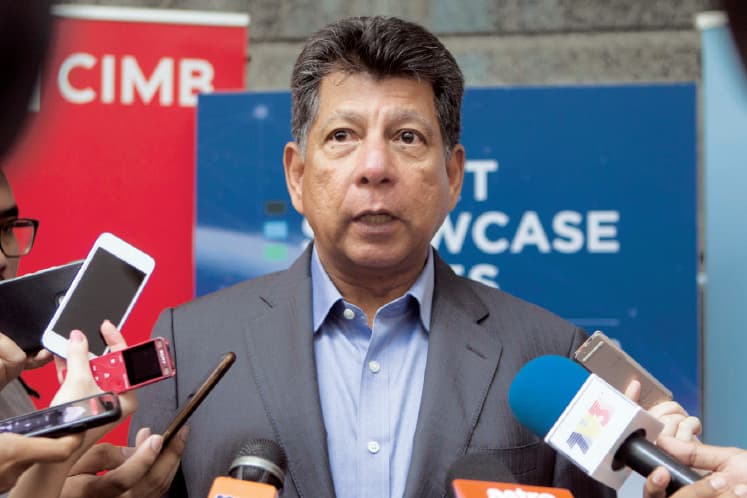
KUALA LUMPUR (June 23): Asean needs greater intra-regional trade, regulatory transparency and free and open trade to recover from the economic onslaught of Covid-19.
These lessons were shared during a webinar titled "How Can Asean Bounce Back: An EU Perspective" hosted by the CIMB Asean Research Institute (CARI), where CARI senior fellow and FratiniVergano — European Lawyers partner Paolo R Vergano provided insights in terms of how Asean can bounce back, drawing lessons from the European Union (EU).
In a statement by CARI, Vergano said Asean cannot rely on external exports after the pandemic and must instead turn to intra-regional trade.
Citing April 2020 data from the World Trade Organization (WTO) — which projected worldwide merchandise trade to drop between 13% and 32% in 2020 — he said that for the open economies of Asean, a significant drop in global trade may drive policymakers to revaluate the region's over-reliance on external export markets.
He stressed that there is much room for improvement with intra-Asean merchandise trade constituting 23% of total trade in the region in 2018, and pointed out that intra-regional trade could provide a hedge against future external trade shocks.
In 2018, intra-European trade accounted for 69% of total trade in the block.
Furthermore, regulatory transparency is key to facilitate greater regional economic integration. While the EU and Asean are structurally different, Vergano opined that there are some overlap areas between the two blocs.
For example, the EU's trade policies and preferential trade agreements prioritise transparency, enforcement mechanisms and stakeholder engagement.
"Traders wishing to engage in cross-border trade must first be aware of the existing rules and opportunities, and understand their rights," he said, while noting Asean has measures such as the Asean Solutions for Investments, Services and Trade (ASSIST).
ASSIST is one way of attracting private sector support by removing non-tariff barriers, streamlining non-tariff measures, expediting solutions for intra-Asean cross-border trading problems encountered by small-to-medium enterprises in the bloc.
He also noted that maintaining free and open trade has been vital for both Asean and EU economies to remain afloat and ensure continued access to important goods.
For both blocs, preserving supply chain connectivity — especially internally — has been identified by both Asean and the EU as key goals as part of their larger response to Covid-19.
On April 14, the special Asean summit saw economic ministers and senior economic officials from the region attempt to find ways to preserve trade connectivity, especially for the flow of essential goods such as medicine, food and essential supplies.
Similarly, the European Commission worked quickly with member states to establish priority lanes for the transport of essential goods and services.
CARI chairman Tan Sri Dr Munir Majid said that Covid-19 presents real lessons for "middle powers" like the EU and Asean.
"Covid-19 should ultimately serve as a wake-up call for Asean that greater regional integration is not some faraway luxury to consider, but increasingly a strategic necessity for a region that wants to preserve its economic vitality and geostrategic independence.
"Notwithstanding our different internal dynamics and histories, the trade and institutional experiences of the EU can impart lessons which Asean must pay attention to," Munir concluded.